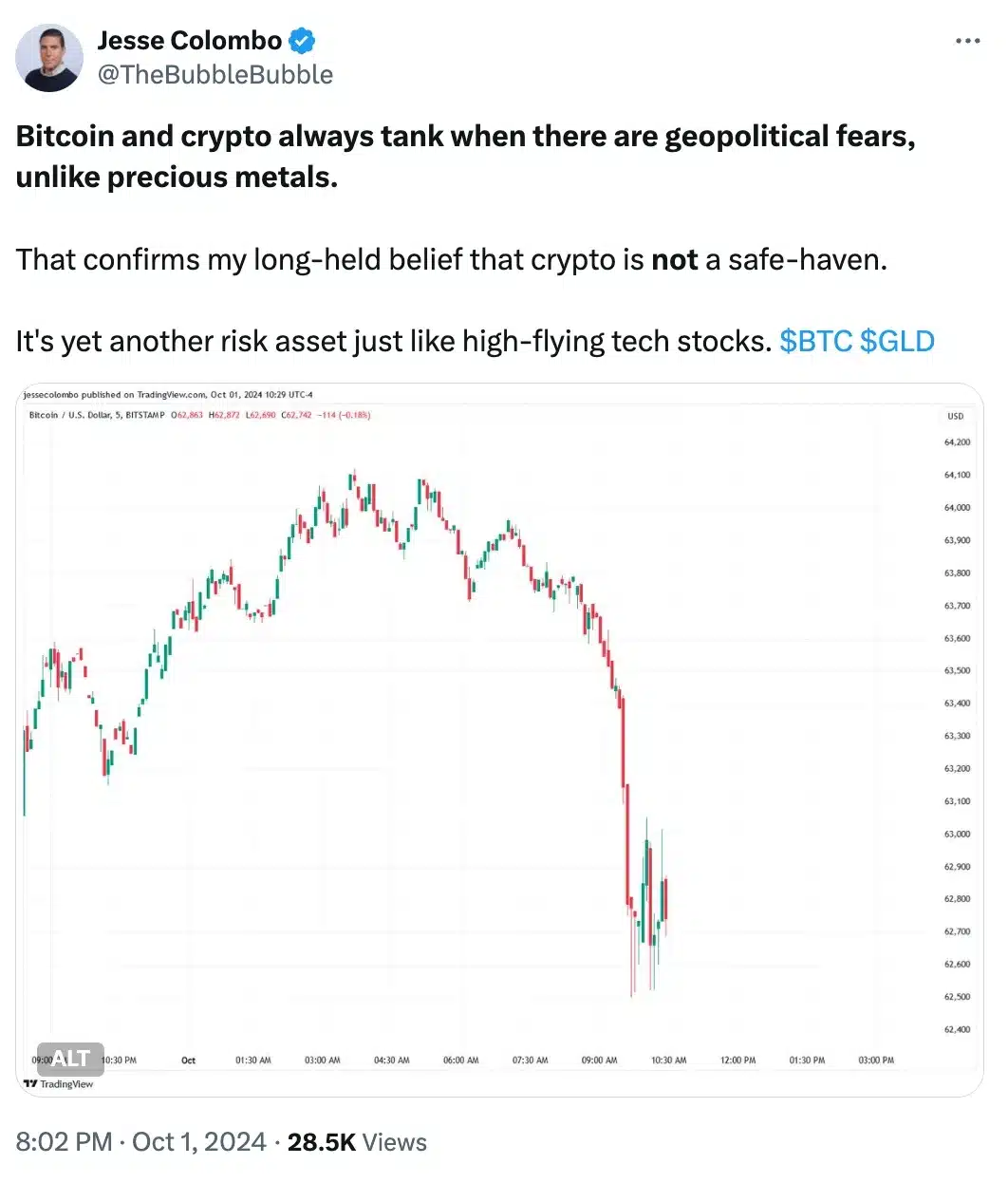- Bitcoin ETFs faced record outflows of $242.6 million amid rising geopolitical tensions.
- Ethereum ETFs also declined, with cumulative outflows totaling $48.6 million as of the 1st of October.
After a period of robust inflows, Bitcoin [BTC] exchange-traded funds (ETFs) experienced a notable reversal, marking a record outflow.
Bitcoin ETF analyzed
On the 27th of September, inflows reached an impressive $494.4 million; however, by the 1st of October, eleven U.S. spot Bitcoin ETFs faced a collective outflow of $242.6 million—the largest in nearly a month, following a $288 million outflow on the 3rd of September.
Among the most affected was Fidelity’s FBTC, which alone accounted for $144.7 million in outflows.
Other significant losses included the ARK 21Shares’ ARKB, with $84.3 million withdrawn, and Bitwise’s BITB, which saw a $32.7 million exit.
Meanwhile, BlackRock’s IBIT saw a positive influx of $40.8 million, marking its 15th consecutive day without outflows, highlighting a mixed sentiment within the Bitcoin ETF market.
What’s causing this decline?
The recent decline in Bitcoin and cryptocurrency markets is largely due to escalating tensions between Israel and Iran.
Iran’s missile strikes in retaliation for Israel’s actions against Hezbollah have fueled market uncertainty, leading to significant sell-offs.
This conflict isn’t new; earlier this year, Iran retaliated with drone and missile attacks that caused Bitcoin to drop over 8%.
With reports indicating that the current situation may worsen, the potential for further negative impacts on the crypto market remains high.
Remarking on which precious metals’ analyst Jesse Colombo said,

Source: Jesse Colombo/X
Ethereum ETFs follow Bitcoin’s suit
As expected, Ethereum [ETH] ETFs experienced a notable decline similar to that of Bitcoin ETFs.
Although the Ethereum ETF hadn’t been on a prolonged inflow streak like its Bitcoin counterpart, it had recently recorded some significant inflows.
As of the 1st of October, however, cumulative outflows for Ethereum ETFs totaled $48.6 million.
Grayscale’s ETHE led the charts with the highest outflow of $26.6 million, followed by Fidelity’s FETh and Bitwise’s ETHW, which saw outflows of $25 million and $9 million, respectively.
While most Ethereum ETFs reported zero flows, 21Shares’s CETH and VanEck’s ETHV bucked the trend, posting inflows of $1.2 million and $2.7 million, respectively.
Impact of geopolitical tensions
Needless to say, the impact of escalating tensions in the Middle East extended beyond ETFs, affecting the entire cryptocurrency market.
For instance, the global crypto market cap fell to $2.17 trillion, facing a decline of 4.10% according to CoinMarketCap.
Bitcoin’s value dropped over 3%, while Ethereum saw a sharper decline of more than 6% in just 24 hours.
In contrast, traditional commodities like gold and crude oil experienced significant gains; gold prices rose by 1.4%, reaching $2,665 per ounce, close to an all-time high, as reported by Goldprice.org.
Crude oil prices surged nearly 7%, hitting $72 per barrel.
Additionally, both bonds and the U.S. dollar strengthened following Iran’s missile strikes targeting Israel on the 1st of October, underscoring the broader market volatility amid geopolitical unrest.
Echoing Colombo’s sentiment, Li Xing, financial markets’ strategist consultant of Exness put it best when he said,
“The escalating conflict in the Middle East has prompted investors to seek security in gold, bolstering its appeal amidst broader market uncertainty.”



